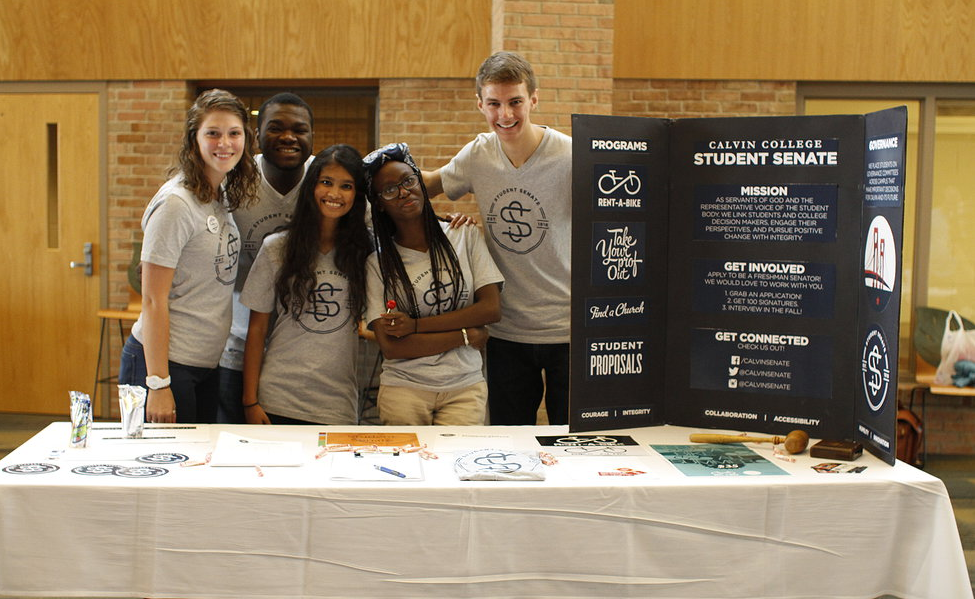This year’s executive team Jona Eigege and Laura Sterenberg won last April’s election promising to refocus student senate both internally and externally. In addition, the executive team aimed to “reconnect with students, making sure that their feelings are being represented.”
Looking back on their campaign, Eigege recounts that their campaign revolved around three areas: to refocus, reconnect and react. “This is our master plan,” said Eigege. “We were very intentional about not making campaign promises so we would not be restricted to doing one thing.”
During the fall, senate worked on refocusing internally, which involved redefining the organization and its structure along with understanding and processing student perception.
“We don’t figure out the direction the college is heading in one day,” said Eigege. “We try to figure out where student senate comes in to help with the master plan as seen with our town hall.”
This year Eigege took a new approach to leading the student governance organization. Eigege notes that previous senate administrations would set up an agenda of things to achieve which would in turn spearhead the direction senate moved towards. For instance Eigege points out that last year’s agenda focused on sustainability while during his freshman year there was a lot more “sticking it to the man.”
After observing senate over the years Eigege found that, “if you’re not pulling the same direction as the college you can’t get anything done.”
“What I’ve learned is that if you want to be successful in senate you need to swim in the same direction as administration,” added Eigege.
However while such a move may seem to dilute student influence, Eigege explains that “if you’re trying to be a strategic president, what you do is you try to find where student need and the direction of the college intersect and hang out there.”
This year President Le Roy has placed an emphasis on the master plan and in response, student senate has focused their own projects on similar areas such as physical space.
“My direction would be looking at which students needs the most physical space on campus,” said Eigege. “We found from our survey that commuters need the most physical space so we’re trying to be more commuter friendly.”
From there on, senate has accepted student proposals that revolve around the idea of more physical space. In the fall, senate partnered with the music department and spent $1,000 of their $10,000 budget to create a music space located in the Surge building on Beltline. Over interim, student senate spent another $3,500 in furnishing the third floor of the library lobby.
Eigege views commuter friendliness as a big part of all that senate is doing this year. This has led to plans to renovate the library lobby, add charging stations around campus and have frisbees available for rent from the student senate office. In fact, Eigege is looking to advocate for an office that works for commuters.
“We are talking to residence life about having floors adopt commuters. You can see many of these [ideas] on our trello board in the brainstorming stages”
Eigege also recognized that senate has a dual role which is helping ‘the man’ and the student. “I always think this is where we should have been,” said Eigege. “We should not be the opposition. I think we are playing the role we should have played a long time ago and for me that has meant letting go of my agenda to make sure senate is successful in reconnecting with students.”
Eigege also continued to emphasize the important role that senate plays on campus.
“I strongly believe that in terms of student led ways to get change on campus student senate we are the most effective and efficient,” said Eigege. “A lot of that is due to the role we play on campus. [We are] a great resource but we have not shown how great of a resource we are.”








